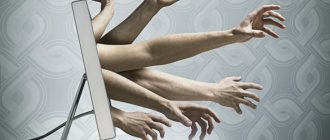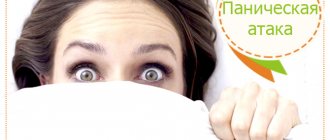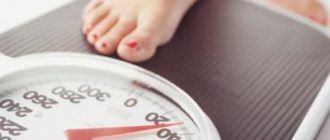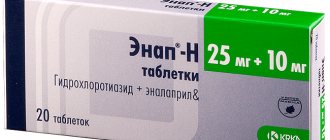Mechanism of action of panic attacks
Before discussing how to overcome panic attacks, it is worth better understanding the mechanism of their action.
In general, each attack goes through a certain cycle, which can be called the “Circle of Panic”. It acts cyclically, because the person suffering from an attack overwhelms himself independently, increasing the frequency and duration of the attack. However, the main feature of the “Circle of Panic” is always its suddenness, because the attack can begin even while you are sleeping. A sudden feeling of anxiety will release the hormones adrenaline and nor-adrenaline into the blood, which sharply constrict the blood vessels. High blood pressure is the main symptom of all panic attacks. As soon as the attack begins, you feel an increased heart rate, forcing you to breathe deeply and quickly due to the obvious feeling of lack of air.
This condition makes a person stop understanding where exactly he is. The picture is complemented by dizziness caused by a decrease in the concentration of carbon dioxide in the blood. This is how a person develops the very feeling of fear, which is then artificially inflated by this person, due to which new hormones are produced. This goes on and on until the person finds a way to stop the attack.
Treatment of phobias and panic attacks at the Alliance Mental Health Center
Are panic attacks curable? Of course, this disease, along with phobias and other anxiety disorders, is treatable - you can learn to stop and prevent mild panic attacks and completely get rid of severe attacks.
A psychotherapist treats panic disorder. It will help you find the cause of panic and work through it during therapy, replacing negative, destructive attitudes with positive ones that give a feeling of confidence and control. If you don’t know how to live with a diagnosis of panic attacks, how to treat this disease and get rid of attacks, contact the Alliance Mental Health Center.
You will learn to anticipate an attack and not be afraid of it, accelerating its development, but to control its course and not let fear take over - to stop the development of the attack yourself.
In addition to cognitive therapy, course treatment for panic attacks includes: body-oriented therapy, relaxation training, biofeedback therapy and other techniques. For panic attacks, drug treatment is used only as an additional method in the initial stages, and gradually patients can find a state of peace without sedatives.
Why does the phenomenon occur?
To understand how to overcome panic attacks on your own, it is important to understand their cause. And the main cause of such conditions is always disorders of the nervous system associated with severe stress. Most often, sufferers experience: depression, suicidal tendencies and drug or alcohol addiction, as well as severe phobia. That is why such attacks cannot be called a disease, attributing them to a specific type of behavior.
The main sources of panic are physical and emotional stress, often supplemented by aggravating factors such as alcohol intoxication, caffeine, energy drink components, lack of sleep and fatigue. An attack can be triggered by either a very stressful situation, such as losing a job, or a trifle, for example, a small conflict with a colleague. But if additional factors are not connected to the situation, then the catalyst should be enormous stress, for example, the loss of a loved one.
It is very important to understand what exactly triggers the “circle of panic” for you, because this is what your treatment should be based on. It is necessary to clearly assess the situation, because the main method of treating attacks will be to stop the attack at each point of its action. You have to change not only your thoughts, but also your bodily sensations, trying to think through your feelings already during an attack. It will also be necessary to prevent hormone releases.
But the main point of how to completely get rid of your panic attacks will be reducing stress in your life. Watch a video about panic attacks and find answers to your questions.
How to get rid of panic attacks yourself - 5 simple steps
The following actions will help reduce the likelihood of developing, or even completely eliminate attacks.
Tea, coffee, alcohol, cigarettes - exclude! The peculiarity of caffeine is stimulation of the nervous system. Almost everyone begins to experience symptoms of anxiety when drinking caffeinated drinks.
Alcoholic drinks are consumed in the hope of relaxing and lifting one's mood. However, on the contrary, after drinking alcohol you may experience a panic attack. Even small amounts of alcohol activate the sympathetic nervous system. Vascular spasm occurs, blood pressure rises, and the heartbeat accelerates, which is so frightening for people suffering from panic attacks.
Nicotine has a negative effect on the airway and, like alcohol, causes spasm of blood vessels.
Drink only clean water and herbal infusions. Soothing lemon balm and chamomile are the best options. It is important to include in your diet foods high in magnesium or potassium (dried apricots, almonds, citrus fruits, carrots) and B vitamins (buckwheat, spinach, broccoli, green peppers, seafood) - they will help restore blood vessels and strengthen the nervous system.
Moderate physical activity is an essential component in the treatment of VSD and panic attacks. Therapeutic gymnastics helps train and strengthen the cardiovascular and respiratory systems. Active physical exercise helps remove excess stress hormone cortisol from the body and produce the hormone serotonin, a natural antidepressant. For VSD, it is recommended to go swimming, jogging, cycling, and doing aerobics.
But the problem is that panic attacks force you to stay at home in fear. A person avoids going out into the street again, for fear of being caught off guard by another attack. The imagination draws terrible pictures of how an attack suddenly happens, a person faints, and everyone passes by indifferently or looks at the unfortunate person with disgust, as if there is a homeless person in front of them.
If you can’t find a companion for walks in the fresh air, at least do regular morning exercises. Just 20-30 minutes of exercise a day will help work out muscle tension and improve blood circulation, which is so important for preventing panic attacks. Regular training will allow you to get used to the fact that increased breathing, heart rate, and shortness of breath are normal physiological functions.
Panic attacks are based on anxiety. As a rule, suppressed, unconscious, but gradually depleting the body’s reserves. People suffering from panic attacks have a common feature - they are poorly aware of their true psycho-emotional state, ignore their needs and desires, and strive to keep their feelings under control.
Reconsider your life. Note those areas of your life that you tend to over-control. Perhaps, in pursuit of material well-being, you work extremely hard at two jobs and do not rest at all. Or you constantly suppress your dissatisfaction in your relationship with a loved one and pretend that everything is fine, although this is far from the case. Find the source of stress and try to eliminate it. You and your health should always come first.
The biggest source of stress that we need to get rid of is our useless worries about the future. Remember that not everything in this life depends on your actions. Life is unpredictable, and all we can do is enjoy what we have in the present. Don't rush. Learn to enjoy everyday little things - a fragrant cup of tea, a beautiful sunset, a friend’s smile.
The next goal is to stop being afraid of seizures. You should develop a clear understanding that during a vegetative crisis nothing bad will happen to you. This is not a fatal disease; people don’t go crazy from it. Even losing consciousness during a panic attack is problematic, because its physiology is completely opposite to a fainting state (during an attack, pressure and tone in the muscles increase).
Physiological discomfort is not so terrible if you understand that there are no serious pathologies behind it. When you stop being afraid of the unpleasant symptoms that occur during attacks, this will be a big step in getting rid of the disease.
It is also important to understand that panic attacks will not go away overnight. They will still be a bother for a while. It is important to learn to live with them, and not to give too much importance to the next crisis.
Positive attitude
Our body is a wonderful self-healing mechanism. The main thing is not to disturb him. Remind yourself often that the body is constantly naturally renewing itself and healing itself. This is how cuts heal, broken bones heal, and the same thing will happen to our nervous system if we don’t interfere with it. Don't make your condition worse by noting and measuring every new symptom. Instead, focus only on the positive aspects of your condition.
For example, let you have panic attacks, let you periodically experience fear, shortness of breath, tachycardia and dizziness. But at the same time, your arms and legs are intact, you are still alive, and between attacks you can choose any topic for thought. Watch a funny movie, call a friend and find out what new and joyful things have happened in his life. Don't discuss politics, problems at work, or your illness. Exchange only good news.
Positive thinking works wonders. It is only important to learn to think purposefully. Of course, at first it’s difficult to develop the habit of seeing the bright side of everything. But that doesn't mean it's impossible.
There are cases when the disease goes away on its own - as suddenly as it appeared. People who have not encountered global difficulties in treatment and have easily overcome the disease very rarely go to forums and talk about their successes. They do not believe that something supernatural happened and do not attach much importance to their positive experience.
Elizaveta, 41 years old
During a panic attack, there is no need to try to calm down. Just watch the symptoms with interest from the outside. This way the attack passes faster.
Sergey, 45 years old
I started doing everything I was afraid of before on purpose. For example, it was scary to go outside - I began to deliberately take long walks far from home. True, at first I took one of my friends or relatives with me. At first I was very nervous. The pulse quickened. But I still walked for at least three hours.
If I had a panic attack while walking, I told myself that I was healthy and nothing would happen. If a panic attack started, I endured it, reminding myself that it was all just nerves and I was completely healthy. I returned home, measured my blood pressure and made sure that everything was really fine with my body.
I did the same with other situations that frightened me - with car trips and going to a stuffy cinema. I didn’t take any pills, I tried to calm myself down, I watched the people in the hall who were much older than me, but were feeling well. Everything did not always go smoothly - sometimes I had a panic attack. But afterwards I calmly analyzed what happened and understood that the reason was simple nerves. So in six months I completely solved the problem.
Elizaveta, 41 years old
Cured attacks in just three weeks without medications. Swimming pool with sauna 3-4 times a week. Every evening before bed, drink valerian root tea with honey. Include foods containing magnesium in your diet (pumpkin seeds, wheat bran, nuts, buckwheat). Watch only comedies and entertainment programs on TV. Completely eliminate communication with whiners and pessimists.
Elena, 34 years old
I almost overcame panic attacks after I moved from St. Petersburg, where there was constant hassle and psychological pressure from the father of my child, to my hometown with my parents. I have now been living here for two months, and the symptoms have almost disappeared.
Katerina, 34 years old
I suffered from anxiety attacks for eight years. Based on my own experience, I want to say: no pills will save you. Yes, perhaps the discomfort will go away for a while. But nothing more. You don't want to be on medication for the rest of your life, do you? Only by pulling yourself together and having the right moral attitude can you defeat the disease.
Tested for myself. By the way, I didn’t turn to psychologists. I was just trying to be positive. I rested more, talked with friends, and tried not to take on extra responsibility at work. Learn to set yourself positive attitudes (self-hypnosis). Soon the body will unquestioningly carry out your commands.
Artem, 23 years old
I remember how I had attacks five times a day. Thank God, everything is in the past. I agree that panic attacks occur from severe nervous exhaustion. The main thing is to learn to look at life more calmly. Try not to get nervous over trifles, relax more. Sports, routine, giving up bad habits, proper nutrition - and panic attacks will subside! It is important to learn to relax. Well, it’s good to keep sedatives on hand just in case.
Related posts:
- How to listen to audio hypnosis? Audio hypnosis is a recording of the voice of a hypnotherapist, superimposed on relaxing music, combined with...
- Treatment of panic attacks with homeopathy Treatment of panic attacks is carried out with the help of medications, group and individual therapy, ...
- How does thanatophobia arise, and how to overcome the fear of death? The fear of dying is a common phobia in world psychological practice, because a person is afraid...
- How to overcome the fear of loud sounds, or ligirophobia? People tend to experience a feeling of fear at the level of reflexes. Unconditional protection of the body includes...
- Frustration - what is it in psychology? Everyone knows the feeling that occurs when a desire that seemed achievable suddenly becomes impossible...
The first method: getting rid of adrenaline
Home boxing
This method involves doing something similar to Thai boxing on your own; you don’t even have to go to any classes. It will be enough to learn a few punches from this martial arts and buy yourself a boxing bag or other object that will be convenient and not a pity to hit. You need to learn knee and elbow strikes, because they are better than others at using the muscles of the arms and legs, which you will use in a stressful situation.
Water treatments
And we are talking specifically about swimming, if possible in the pool. Here, two of its advantages work for you at once: water has properties that relax the human psyche, and swimming will use the muscles of the limbs to remove the hormone. For the best effect, you should swim crawl, working your limbs often and quickly.
Bathhouse with brooms
A rather pleasant method of treating panic attacks is taking a real Russian bath, if possible. Hot steam can dilate blood vessels and relax muscles, and therefore relieve physical stress from the body. Also, blows with brooms will massage the muscles, helping the steam room remove toxins from the body through sweat. If it is not possible to visit a Russian bath, give preference to a hammam or an infrared sauna.
It is the physical stress of the whole body that experienced athletes very often experience, which is why a special massage, hard massage, was developed for them. Warming ointments are always specially used for this in order to relax the muscles as much as possible and release the remaining hormones. If you are sure that you can do without oils, then use aromatic oils to relax your psyche.
Physical activity helps relieve muscle tension, but it must be chosen carefully. It is important that the exercises help stretch the muscles and ligaments, which is what yoga, Pilates and Nordic walking help best with. The latter will also help distract your head if you can walk in a park near a pond. Breathing practices will also not be superfluous, they will greatly help you keep yourself under control in particularly alarming situations.
Drawing up a wellness program from at least two items on this list is the first step on the path to recovery. It is very important to keep your body in harmony with your head, and each of these methods helps with this.
Even if this is not your first attack, but you have not yet learned to understand how to overcome panic attacks, how to get rid of the very feeling of anxiety, you should try to accept the current situation and analyze the reasons for your panic. Do you feel disturbances similar to looming anxiety? Wash your face with cold water to restore a sense of control over your body.
Carry paper bags with you, but if you don’t have one, just try to force yourself to inhale and exhale deeply several times in a row. Be sure to go out into the fresh air, preferably with the support of a loved one. It’s worth walking with someone you like down the street for a while.
In general, try to walk more and do nice little things for yourself to relieve stress. Stop your work if possible and take a few days to rest. Change activities and talk to people you trust. Also, be sure to drink sedatives and eat foods that bring you pleasure.
We hope this article was useful and informative for you. We have tried to develop an effective method that allows you to get rid of panic attacks forever by stopping attacks at each stage of their manifestation. By following the recommendations in this article, you will be able to accept yourself, forget about worries and keep your head in harmony with your body.
Related posts:
- What is arachnophobia, and how to stop being afraid of spiders? Arachnophobia refers to the mental fear of arachnids. In this state a person...
- Panic attack hypertensive crisis Attacks of uncontrollable fear, called panic attacks, are accompanied by a significant jump...
- Panic attacks symptoms and treatment with folk remedies Almost every person at least once in their life has encountered a condition where their heart rate increases, they sweat...
- What is the name of the fear of vomiting: symptoms and treatment of vomitophobia Nausea and vomiting do not cause pleasant sensations for anyone, but for some people this condition inspires...
- What is the fear of clowns called: causes and treatment of coulrophobia Every person has their own phobias. Some people are terrified of circus comedians. Many int…
To return to normal in the event of a sudden attack, there are special techniques and actions:
- Concentration. Fear of heights on an airplane, fear of being in a crowd or confined space literally dissolves a person’s thoughts, making them unclear. The victim of an attack must do his best to catch his eye on any clear detail: a bag, a zipper, a phone, a banner, etc. You need to concentrate your attention on this thing, examine it in detail, note the color, shape, composition, think about how it turned out in this place. The concentration method is designed to focus disparate thoughts on one specific detail and restore clarity to the mind.
- Self-observation. Since in a panic attack emotions, not reason, take control over a person, you need to use a logical, rational approach. Without throwing away the panic state, look at how exactly you are experiencing it, what symptoms are you noticing, what are you thinking about? Analyze your own condition, look at yourself from the outside. During these actions, the rational part of the mind is activated, which is responsible for the clarity and logic of sequential actions.
- Using progressive muscle relaxation techniques. This mechanical action can not only relax the body, but also distract thoughts from the current situation. If possible, sit on a chair, close your eyes and squeeze your toes tightly, hold this state for 5 seconds, then unclench them. You will feel a sharp relaxation in your feet. Repeat the action on the muscles of the calves, thighs, buttocks, arms, abs and other parts of the body. By alternately squeezing your muscles and releasing them sharply, you concentrate on the movement, causing your body to relax. This technique is perfect for pregnant women who have experienced a panic attack for the first time.
- Grounding. Imagine any thing, person or animal. Start remembering everything connected with him: if you introduced a friend, then mentally evoke memories of other friends, think about what they look like, what they usually wear. List their names, surnames, closest acquaintances, relatives, etc. The grounding technique is used quite widely: this includes slow counting to 10, 100, 1000, and sequential subtraction from one number to another, and evoking associations. The technology has a clear purpose - to return a person to reality from a panic attack.
- Creating comfort. If you feel a sudden cold (one of the symptoms of a panic attack), then find a way to warm up: drink a cup of hot tea, dress warmly, turn off the air conditioning if possible. This way you will relieve some of the tension and physically remove some symptoms.
Factors that provoke a panic attack (vegetative crisis)
Psychogenic
- The situation of the culmination of the conflict (divorce, explanation with the spouse, leaving the family, etc.)
- Acute stress (death of loved ones, illness or accident, etc.)
- Abstract factors operating through the mechanism of identification or opposition (films, books, etc.)
Biological
- Hormonal changes (pregnancy, childbirth, end of lactation, menopause)
- Beginning of sexual activity, abortion, taking hormonal drugs
- Menstrual cycle
Physiogenic
- Alcoholic excesses
- Meteorological factors, excessive physical activity, etc.
How to overcome panic attacks: reviews
Nothing boosts morale more than success stories in the fight against panic attacks from other people who have experienced the same problems, difficulties and fears.
I have been suffering from panic attacks for 10 years. To relieve attacks, I took Corvalol, valerian, glycine, atarax, and phenibut. I always avoided strong drugs, fearing side effects and addiction. Relanium helped a lot until it was banned.
Oleg, 36 years old
Simple herbs like valerian, motherwort, hawthorn will not help with panic attacks. You need to go to the doctor and ask for a prescription for antidepressants. Fluoxetine helped me.
Kirill, 25 years old
Fanazepam is a great remedy for panic attacks, but only to stop the attack. There are many ways to relieve a panic attack without medication. It’s better not to be lazy and undergo a course of psychotherapy. Although, to calm your nerves, “just in case,” you can carry pills with you.
Svetlana, 28 years old
For the first time I experienced a panic attack at night. Then I was terribly afraid to go to bed. Soon the attacks began to torment me during the day. The whole body was shaking, pulse 140, dizziness, fear of dying. I was afraid to leave the house alone. The clinic diagnosed VSD and referred me to a psychotherapist. Through trial and error, I found antidepressants - Pyrazidol. Finally, she lived a normal life.
Vadim, 35 years old
At one time, advice to be treated by neurologists or psychiatrists, who prescribed medications and nothing more, delayed the solution to the problem for four long years. Pills relieve symptoms, but do not help fight the cause of anxiety. It was only when I turned to psychology that I was able to finally get rid of the disorder.
Elena, 26 years old
Until the age of 22, I considered myself an absolutely healthy person, until a nightmare called panic attacks began. For three years, I visited a lot of doctors, spent money on examinations and tests. As a result, a banal diagnosis of VSD of the hypertensive type was made.
No treatment was prescribed as such. They prescribed some sedative herbs, which did not help. The attacks only became more frequent and became so severe that I practically stopped leaving the house. Afterwards, tranquilizers, antidepressants and antipsychotics were prescribed. But after a year of taking it, addiction apparently developed, and the attacks returned.
Alena, 27 years old
I signed up for an in-person consultation with a psychologist, but ran away from the first session - I couldn’t stand it. The meeting took place in a cramped room in the basement. The doctor sat, looked at me silently and only occasionally asked questions that made me cry.
Maria, 45 years old
This has been the case for 15 years now. At the beginning there were such acute attacks that I constantly called an ambulance. And then I started studying all the available information about panic attacks. Now I know everything about neuroses, no worse than a professional psychotherapist.
It’s natural to run to doctors and get examined endlessly in this state. You think to yourself that you will now discover the disease, treat it, and everything will go away. But this is a misconception. Only psychotherapy will help and nothing else! Of course, the work ahead is long and difficult. But the result is worth it. I still occasionally experience some symptoms of a panic attack, but I have learned to live with them.
When I was on the train for negotiations, I felt feverish, an attack of strong heart palpitations began, my heart sank very much, and strong fear arose. They called an ambulance, did a lot of tests, but found nothing. The doctor diagnosed VSD. A week later the attack occurred again. I took a pill for blood pressure, but after five minutes all the symptoms suddenly disappeared, although the drug was supposed to take effect only after half an hour. After a second examination with doctors, I learned that I was having panic attacks.
I turned to a psychotherapist. I heard explanations that panic attacks are non-fatal and there is no need to be afraid of them. But, of course, fear at the moment of an attack does not lend itself to logical beliefs. I decided to seek help from a hypnotherapist. It would take a long time to explain the whole process of hypnotherapy. A lot of personal things came up.
I suffered from terrible panic attacks for 6 years. I couldn’t travel on public transport. I stopped traveling outside the city. There was no question of flying somewhere by plane. A friend insisted that I contact a hypnologist. I decided because I really wanted to show the child the sea.
Therapeutic measures
- Providing a medical and protective regime;
- Corvalol – 30-50 drops orally in a warm solution of water or, and
- Valerian tincture – 30 drops orally in a warm solution of water or, and
- Motherwort tincture – 30-50 drops orally in a warm solution of water;
- Glycine – 500 mg sublingually;
- If intravenous administration of medications is necessary:
- Catheterization of the cubital or other peripheral veins or installation of intraosseous access;
- For arterial hypertension and tachycardia, no contraindications:
- Anaprilin – 10-20 mg or
- Metoprolol – 25-50 mg orally or
- Captopril – 25-50 mg orally or
- Enaprylat (Enap R) – 0.625-1.5 mg IV (intraosseous) bolus slowly;
- If symptoms of the disease persist:
For psychiatrists:
- Tizercin – 25-50 mg IM or orally or
- Diazepam – 0.15-0.3 mg/kg (Phenazepam – 0.5-1-2 mg) IM or IV (intraosseous) bolus slowly;
For teams of all profiles:
- Diazepam -0.15-0.3 mg/kg IV (intraosseous) bolus slowly;
- Medical evacuation according to indications (see “General tactical measures”).
The second way: study your symptoms
The next step in how to overcome panic attacks will be to understand the very essence and mechanism of action of each of the symptoms of an attack. Anyone suffering from such a disorder should understand that the symptoms of an attack, without additional intensification, last no more than three minutes. It is important to mentally prepare yourself for such reactions of your body so as not to be afraid of completely natural processes that cannot cause you any significant harm.
Many people experiencing a panic attack for the first time mistakenly believe that they are having a heart attack because their heart is beating too hard and too fast. The heart is the main distillation apparatus of the entire body. If it begins to beat vigorously, then it is important to think about why the body needed a quick transfer of blood.
It is with this thought that one should begin thinking, without being afraid of the abstract judgment that the heart muscle can rupture. The last thought makes people panic. However, specialists in cardiology have long established that in a healthy person it can safely work in this mode for about two to three months in a row. Therefore, it is worth thinking about the cause of the heartbeat.
The feeling that we call goosebumps is not the most pleasant in our life, and in a moment of panic it can only intensify the attack. However, this sign has a logical basis, which is related to the previous paragraph - the outflow of blood from the brain. The heart muscle began to beat to drive blood to the extremities, and it would take it from the head.
Each sign follows smoothly from the previous one: after blood loss, the brain loses a large amount of oxygen. It is oxygen starvation that is the main reason that you begin to lose orientation in space. A similar effect can be caused by a stuffy room, a rapid change in elevation, or too much altitude in the mountains. But don't worry, remember that the blood will return within one to three minutes if you do not prolong the attack.
Remember that your body is still pumping blood from one part of the body to another, and blood arteries alone are not enough to handle large volumes of blood. Here the body uses capillaries, which, when dispersing hot blood, heat up themselves. This is how fever appears, which, due to the rapid outflow of blood from the capillaries, turns into chills.
Heavy limbs
If the head does not receive enough oxygen and blood at the moment of panic, then there is too much of it in the arms and legs, which leads to a feeling of weight and swelling of the limbs. If you feel as if your arms and legs are full of air, and this feeling is complemented by goosebumps and small tingling sensations, then this is just an abundant flow of blood. You should not be afraid even that you can visually see their swelling, because it will end immediately after the attack.
During a panic attack, it is quite difficult to breathe easily and deeply, which does not help in any way to remove panic from your head. In fact, the body needs such breathing in order to quickly drive blood through the channels, because the more often we breathe, the faster the heart beats.
A very important step in how to get rid of panic attacks and fear of your body is precisely the study of its natural reactions. A person is afraid of the unknown, but if you can properly explain to yourself what is happening to you, then many fears will go away. This will help you avoid focusing on your body, giving yourself the opportunity to remove the very disturbing thought that started this process. Let's talk about this now.
Useful tips for a panic attack
If a person is shaking, chills, or feels cold, it is necessary to additionally cover him and give him a hot drink. On the contrary, in case of heat and sweating, the patient is helped to wash his face with cool water and gently fans himself, trying not to do this in front of his face.
Usually these simple actions are enough to relieve a panic attack. However, it should be remembered that this is not an independent disease, but only a symptom, so if attacks recur regularly, doctors advise consulting a specialist to identify the causes of this condition. They can be very different, from a physiological illness to a mental disorder. A complex of reasons is also possible.
The third way: stopping bad thoughts
The next step is to get rid of thoughts about the catalyst for your panic attacks. Obviously, the main fuel for panic attacks is fear. If you get rid of this feeling immediately after the attack begins, it will last no more than three minutes, but “winding up” the fear prolongs the attack to several hours.
That is why you will have to learn to mentally evaluate the world around you already at the moment of a panic attack. If you can force yourself to realize that you are experiencing just another reaction of your body to an external stimulus, then you can remove the feeling of fear. As advised in the previous paragraph, explain to yourself each symptom that you feel, but now these thoughts will also have to be supported by explaining your fear and replacing the thought that causes it with a neutral one.
You can also try to go through the three stages of freeing yourself from anxious thoughts. To do this, you need to choose the main disturbing thought that torments you during attacks, and move on from it. As an example, take the thought “I am afraid that they will kill me on the street.”
- Awareness of the consequences of anxious thoughts.
The first step is to try to understand what exactly your thought will do to your body. You can try to independently rate your fear from one to ten, thinking through the image that corresponds to this thought. In our case, it’s “unknown people are shooting at me with a gun on the street.”
- Selection of thoughts that could replace the previous one.
Here, only you can independently choose a few thoughts that could serve as an alternative to your anxious one. These options should help reduce anxiety concentration. A good strategy would be to start with pleasant feelings like joy, pleasant surprise or pride. A positive image, which is the opposite of the anxious thought image, may also work. In our case, the following options may result:
- “I did the best job among my classmates, and the teacher is proud of me”
- “I eat the best Caesar salad of my life.”
- “I'm watching a great comedy with my loved one and we're laughing a lot.”
- “My beloved man hugs me, I feel very warm and good.”
Obviously, these thoughts may not even be indirectly related to the anxious one, but they evoke the opposite positive emotions, which is very important for us now. But this is still not enough, because each of the options must be applied to anxiety and choose the one that copes better with relieving tension.
- We embed the chosen thought instead of anxiety.
The last step of this method to get rid of panic attacks assumes that you will try your best and artificially instill new joyful feelings in yourself. Once upon a time, people used electric shocks to change their own or other people's thoughts, but today you will need a regular piece of paper and a standard rubber band.
Now put the rubber band on the wrist of the hand that you intuitively use less (left hand for right-handed people and vice versa). Try to put it on so that it just covers your hand, but does not put pressure. This rubber band will be the main weapon in the fight against panic attacks, because when you feel the beginning of an attack, you must mentally shout out your safe word and pull the rubber band back significantly to hit yourself on the wrist with it. Of course, you shouldn't hit yourself too hard, but you should feel the pain.
Now you need to imagine your pleasant and positive thought, making yourself feel the emotions associated with it. It will take you about 20–30 seconds to build this image, but with each new attack and blow it will become faster and easier. After a while, it will be enough to simply say your safe word within yourself to move away from negative thoughts to pleasant sensations. Of course, you should not experience joy, but you are guaranteed peace and self-control.
If you have several anxious thoughts, you need to work with each of them in this way for about five days to finally get rid of panic attacks.











